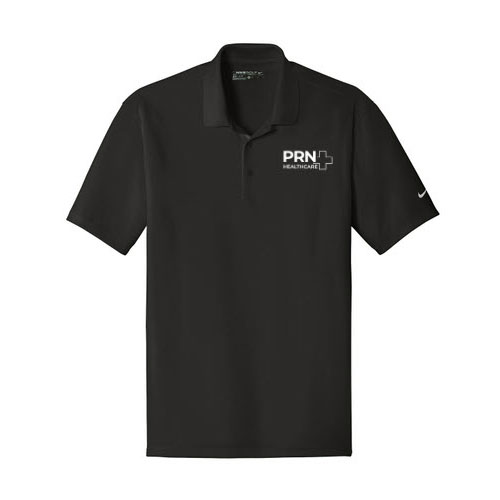Table of Contents
Why did you choose to become a physician assistant?What do you find most rewarding about being a physician assistant?Describe a time when you had to manage a difficult patient.How do you stay current with medical knowledge and advancements?What is your approach to patient education?How would you handle a situation where you disagreed with a supervising physician’s decision?Can you discuss a time when you had to make a quick decision in a clinical setting?How would you handle a situation where you don’t know the answer to a patient’s question?Describe a time when you had to work collaboratively with other healthcare professionals.What strengths do you bring to the role of a physician assistant?How do you ensure patient confidentiality?What do you think is the most challenging aspect of being a physician assistant?How do you handle a patient who refuses treatment?What is your experience with electronic health records (EHR)?What role do you see yourself playing in a healthcare team?How do you handle a situation where a patient is non-compliant with their treatment plan?What strategies do you use to build rapport with patients?What role do you think PAs will play in the future of healthcare?What do you think are the biggest challenges facing physician assistants today?What are your long-term career goals as a physician assistant?Preparing for your interview is crucial because it increases your likelihood of securing a physician assistant job. Effective and thorough preparation helps a candidate present themselves with confidence, clearly articulate their skills and experiences, and respond effectively to the questions. Practicing potential interview questions provides the candidate with a chance to refine their answers, reduce their anxiety, and demonstrate they are the best candidate for the job.
Preparation will reflect positivity on a candidate’s enthusiasm and performance and leave a good impression on the potential employer. In a competitive job market, being prepared can differentiate a candidate from other competitive PA candidates.
Preparing for your physician assistant interview involves anticipating questions about both your technical knowledge and skill set. Here are 20 potential interview questions along with potential answers:
Why did you choose to become a physician assistant?
Answer: “I wanted to become a physician assistant because I am passionate about patient care, and I believe the PA role allows for a great balance of autonomy and collaboration within the healthcare team. The ability to diagnose, treat, and educate patients while working closely with physicians gives me an opportunity to impact a patient’s life.
What do you find most rewarding about being a physician assistant?
Answer: “One of the most rewarding aspects of being a physician assistant is the ability to make a difference in patients’ lives every day. I find it satisfying to build long-term relationships with patients and see the positive outcomes of the care I’ve provided, knowing that I played a role in improving their health and quality of life.”
Describe a time when you had to manage a difficult patient.
Answer: “During my emergency medicine rotation, I encountered a patient who was very anxious and non-compliant with treatment. I listened to their concerns, explained the treatment plan in a way she could understand, and reassured them about the process. I worked to gain her trust and cooperation.”
How do you stay current with medical knowledge and advancements?
Answer: “I stay current by regularly reading medical journals, attending workshops and conferences, and participating in continuing medical education (CME) courses.”
What is your approach to patient education?
Answer: “I believe patient education is key to effective healthcare. I strive to provide clear explanations and tailor it to the patient’s level. Visual aids can be beneficial to make complex information simpler. Most importantly, I always check for understanding by asking the patient to repeat back the information.”
How would you handle a situation where you disagreed with a supervising physician’s decision?
Answer: “I would respectfully express my concerns by presenting evidence-based information or clinical guidelines that support my viewpoint; however, I recognize the importance of the physician’s final decision and will ensure the discussion remains professional and patient-centered.”
Can you discuss a time when you had to make a quick decision in a clinical setting?
Answer: “While on a surgical rotation, a patient began showing signs of an allergic reaction during a procedure. I quickly informed the surgeon and anesthesiologist, and we administered the appropriate medication to stabilize the patient.”
How would you handle a situation where you don’t know the answer to a patient’s question?
Answer: “If I don’t know the answer, I would be honest with the patient and let them know that I will investigate. I would either research the information or consult with a supervising physician to provide an accurate and informed response.”
Describe a time when you had to work collaboratively with other healthcare professionals.
Answer: “I worked closely with a multidisciplinary team that included the attending physician, nurses, a dietitian, a pharmacist, and a social worker. My role involved performing a comprehensive physical exam, ordering and interpreting diagnostic tests, and initiating the appropriate treatment plan under the guidance of the supervising physician.”
What strengths do you bring to the role of a physician assistant?
Answer: “My strengths include strong communication skills, the ability to work under pressure, and a deep commitment to patient care. I am also highly adaptable, detail-oriented, and have a strong foundation in clinical knowledge and skills.”
How do you ensure patient confidentiality?
Answer: “I always adhere to HIPAA regulations, ensure protection and storage of patient records, and discuss patient information only with authorized personnel.”
What do you think is the most challenging aspect of being a physician assistant?
Answer: “One of the most challenging aspects is managing the balance between autonomy and collaboration with supervising physicians. It requires good judgment to know when to act independently and when to seek guidance to ensure the best patient outcomes.”
How do you handle a patient who refuses treatment?
Answer: “I try to understand the reasons behind their refusal by asking open-ended questions and listening to the patient’s concerns. I provide information about the risks and benefits of the treatment and discuss alternatives. I do respect the patient’s autonomy, but I would thoroughly document their refusal in the medical record.”
What is your experience with electronic health records (EHR)?
Answer: “I am proficient with various EHR systems including x, x, and x. I’ve used them to document patient information accurately, streamline workflows, and improve communication within the healthcare team.”
What role do you see yourself playing in a healthcare team?
Answer: “I see myself as a collaborative team member who brings a strong clinical skill set and a patient-centered approach to care. My goal is to effectively communicate with other team members, support the team’s goals, and ensure that patient care is delivered efficiently and compassionately.”
How do you handle a situation where a patient is non-compliant with their treatment plan?
Answer: “I try to understand the reasons behind their non-compliance. I ask open-ended questions to uncover any concerns, barriers, or misunderstandings the patient might have and work with them to address these issues, whether it’s adjusting the treatment plan, providing additional education, or involving other members of the healthcare team.”
What strategies do you use to build rapport with patients?
Answer: “I build rapport through listening and showing an interest in my patient’s concerns. I make it a point to introduce myself clearly, explain my role, and ensure the patient feels heard. I maintain eye contact and use body language that conveys openness and understanding and personalize the interaction by remembering details about the patient’s life.
What role do you think PAs will play in the future of healthcare?
Answer: “I believe PAs will play a crucial role in expanding access to quality healthcare, especially as the demand for medical services increases with an aging population and an emphasis on preventive care. PAs are well-positioned to alleviate some of the burdens on physicians by providing high-quality care in various healthcare settings.”
What do you think are the biggest challenges facing physician assistants today?
Answer: “One of the biggest challenges facing PAs today is navigating the evolving healthcare landscape, particularly scope of practice and regulatory changes. As the role of PAs continues to expand, there are ongoing discussions and variations in state laws that affect autonomy, prescriptive authority, and the ability to practice at the top of our license.”
What are your long-term career goals as a physician assistant?
Answer: “My long-term career goals include becoming a highly skilled and trusted PA, and further specializing in a particular area of medicine that I am passionate about. I would also like to take on leadership roles, participate in research, and be involved in educating future PAs through mentoring or teaching.”
Preparing for your PA interview is key to a strong, first impression. By practicing possible interview questions, you can improve your communication skills, reduce possible anxiety, and effectively convey your qualifications and desire for a new position. Your preparation will boost your confidence and will demonstrate your commitment and professionalism. Being well-prepared is an important step toward career success as a physician assistant.




